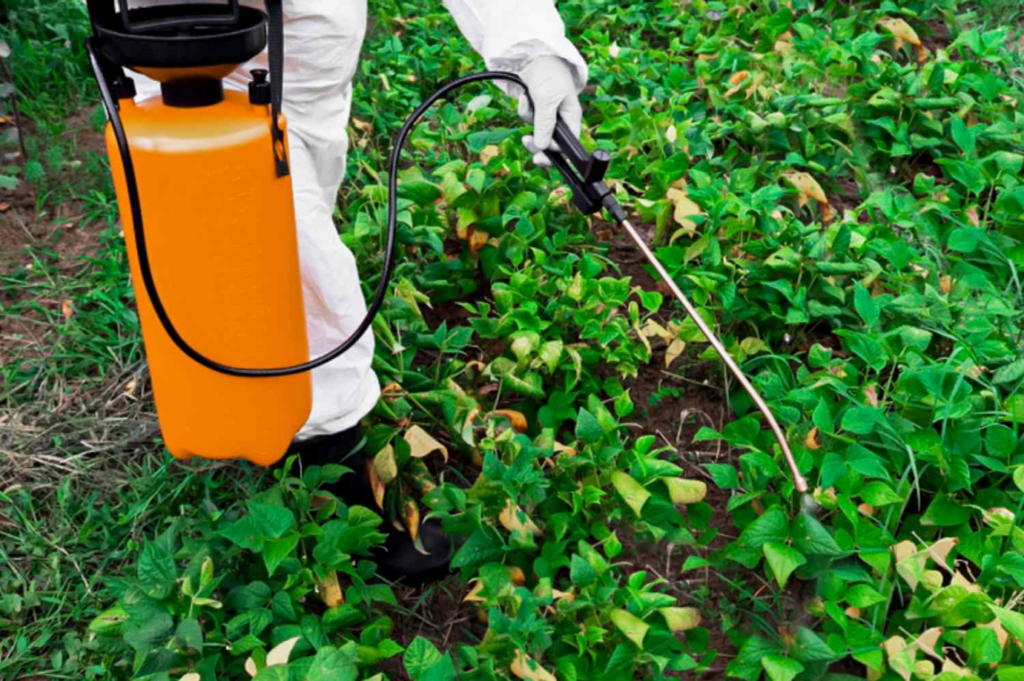Keeping a lawn green and vibrant does not have to equate to chemical-oriented solutions and synthetic fertilizers. Homeowners can maintain a beautiful, healthy lawn using organic methods to reduce environmental impact. This complete guide looks at organic fertilization and weed control methods, such as composting, mulching, and natural herbicides, to help you create a thriving lawn naturally.
1. Understanding Organic Lawn Care
This chapter offers information on organic fertilization and weed control methods such as composting, mulching, and natural herbicides. Organic lawn care is all about utilizing sustainable, natural approaches that will ensure healthy soil, biodiversity, and the overall resilience of your lawn. Organic lawn care systems support the ongoing health of lawns without resorting to synthetic chemicals by concentrating on developing a robust ecosystem that encourages healthy soils.
2. Organic Fertilization Methods
Creating nutrient-rich lawn compost from kitchen scraps, yard waste, and other organic materials is an option for homeowners. This practice enriches the soil with organic matter and vital nutrients.
Natural fertilizers like compost tea, seaweed extract, or bone meal are examples of organic fertilizers since they contain gentle yet effective sources of nutrients for grasses and plants. These organic fertilizers encourage the slow release of nutrients, thereby promoting steady growth and long-term soil fertility.
3. Natural Weed Control Strategies
Mulching: Mulching with organic materials like grass clippings, straw, or shredded leaves helps suppress weed growth by smothering weed seeds and blocking sunlight. Moreover, it helps maintain soil moisture, so less supplementary watering is needed.
Hand Weeding: This method of manually removing weeds is time-consuming but effective; no chemicals are used. In addition, weeds can be plucked out by hand regularly to prevent them from spreading and competing for resources with grass.
4. Enhancing Soil Health
Aeration
Aerating your lawn helps improve soil structure by allowing air, water, and nutrients into the roots. Small holes in the soil are created using manual or mechanical aerators.
Topdressing
Topdressing is putting a thin layer of compost or organic soil on your lawn. This improves soil structure, adds nutrient content, and boosts the healthy growth of the grass.
Organic Soil Amendments
Adding organic soil amendments such as aged manure, peat moss, or leaf mold improves soil fertility and structure. These enrichments enhance water-holding capacity while promoting the availability of nutrients within the soil.
5. Organic Lawn Care Practices
Soil Test: Testing your soil is vital before undertaking an organic lawn care program to determine the level of minerals and the pH balance. A soil test helps ascertain your lawn’s specific needs and guides you in choosing organic amendments and fertilizers.
Mowing Techniques: The right height and regularity for mowing ensure healthy grass growth and exclude weed invasion. Then, set your mower blades to the right height, depending on your type of grass. Always avoid removing more than one-third of the grass blade’s length at once.
6. Why Choose Organic Lawn Care?
Better Soil
Organic lawn care focuses on creating healthy soil, which forms the basis for a beautiful lawn. Healthier soil promotes strong growth in grasses and enhances their resistance to pests and diseases.
Environmental Advantages
Organic lawn care avoids synthetic chemicals, thus preventing water pollution while reducing the impact on wildlife in local areas. Additionally, it supports biodiversity by promoting the presence of beneficial organisms.
Safety for Families and Pets
When you use organic methods, no harmful chemicals can be absorbed into your lawn, so children or pets can safely play on it.
7. Switching to Organic Lawn Care
Gradual Transition: Expanding an organic garden may require a gradual approach, especially if synthetic chemicals have been used on your lawn before. Start by cutting down on chemical inputs, then gradually introduce organic practices over time.
Conclusion: Taking Up Organic Lawn Care for A Greener Future
Conclusively, organic lawn care is a viable long-term plan for sustainable ecosystem development and maintenance of attractive lawns in good health condition. Through processes such as composting, mulching, and using natural herbicides, among others, homeowners may establish vibrant outdoor surroundings while protecting nature by implementing sustainable processes for fertilizer application like applying compost manure as well as preventing weeds from infesting their surroundings, leading to ecological diversity among other aspects relating to a healthy ecosystem. So, why not adopt organic lawn care practices today to get a greener and cleaner environment?
Call to Action for Regal Lawn Care Are you ready to go organic with your lawn? Contact Regal Lawn Care today for more information on our environmentally friendly lawn care services. Together, we will craft an individualized organic lawn care plan that meets your lawn’s specific needs. With Regal Lawn Care, you can enjoy a healthier, greener garden by ditching chemicals.







